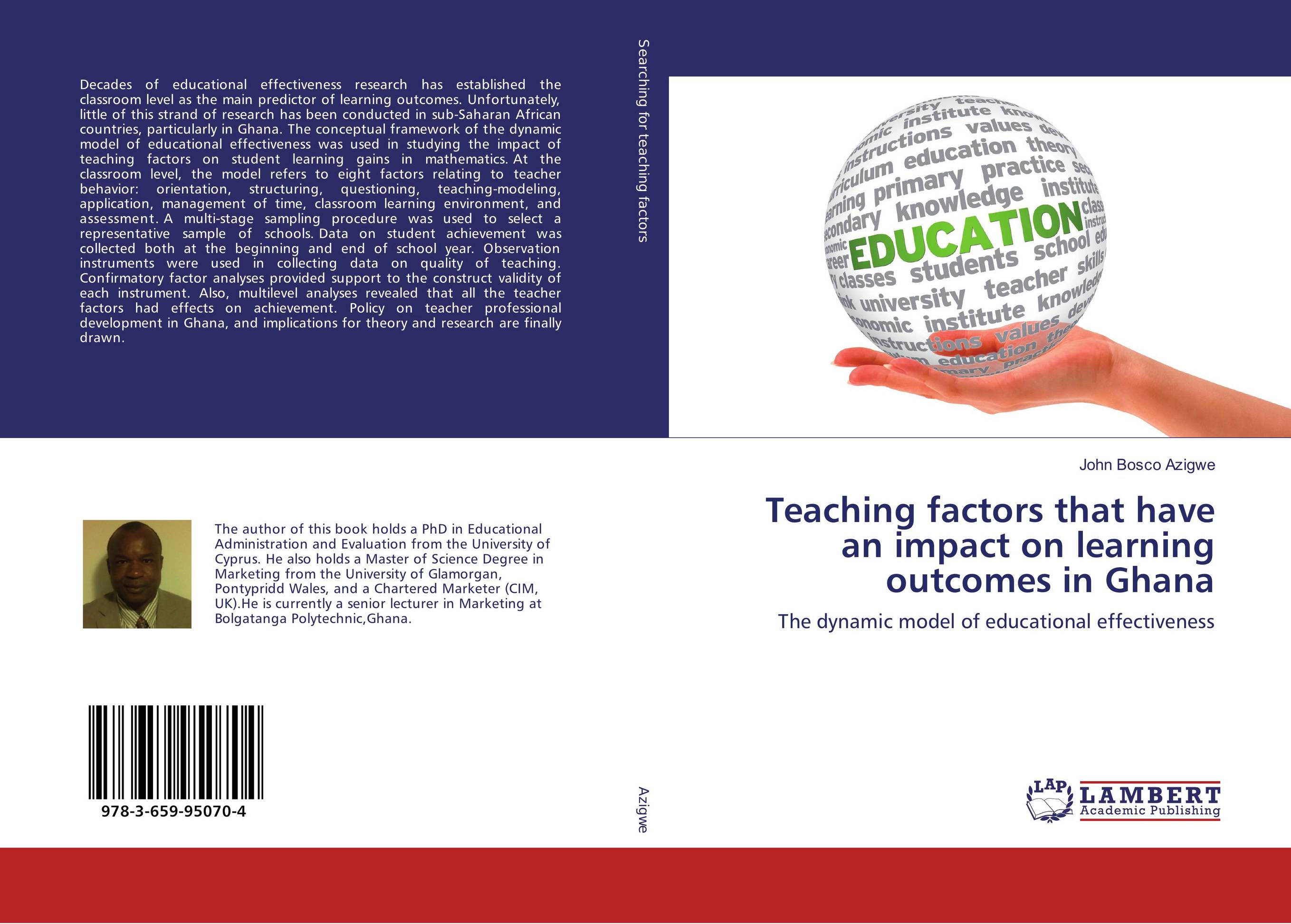| Поиск по каталогу |
|
(строгое соответствие)
|
- Профессиональная
- Научно-популярная
- Художественная
- Публицистика
- Детская
- Искусство
- Хобби, семья, дом
- Спорт
- Путеводители
- Блокноты, тетради, открытки
Teaching factors that have an impact on learning outcomes in Ghana. The dynamic model of educational effectiveness

В наличии
| Местонахождение: Алматы | Состояние экземпляра: новый |

Бумажная
версия
версия
Автор: John Bosco Azigwe
ISBN: 9783659950704
Год издания: 2016
Формат книги: 60×90/16 (145×215 мм)
Количество страниц: 188
Издательство: LAP LAMBERT Academic Publishing
Цена: 39855 тг
Положить в корзину
Позиции в рубрикаторе
Сферы деятельности:Код товара: 163006
| Способы доставки в город Алматы * комплектация (срок до отгрузки) не более 2 рабочих дней |
| Самовывоз из города Алматы (пункты самовывоза партнёра CDEK) |
| Курьерская доставка CDEK из города Москва |
| Доставка Почтой России из города Москва |
Аннотация: Decades of educational effectiveness research has established the classroom level as the main predictor of learning outcomes. Unfortunately, little of this strand of research has been conducted in sub-Saharan African countries, particularly in Ghana. The conceptual framework of the dynamic model of educational effectiveness was used in studying the impact of teaching factors on student learning gains in mathematics. At the classroom level, the model refers to eight factors relating to teacher behavior: orientation, structuring, questioning, teaching-modeling, application, management of time, classroom learning environment, and assessment. A multi-stage sampling procedure was used to select a representative sample of schools. Data on student achievement was collected both at the beginning and end of school year. Observation instruments were used in collecting data on quality of teaching. Confirmatory factor analyses provided support to the construct validity of each instrument. Also, multilevel analyses revealed that all the teacher factors had effects on achievement. Policy on teacher professional development in Ghana, and implications for theory and research are finally drawn.
Ключевые слова: Teaching factors, student learning outcomes in Ghana, The Dynamic Model of Educational Effectiveness



